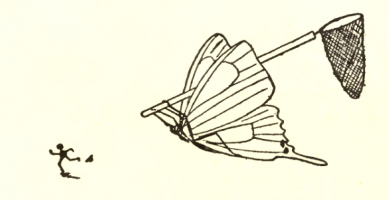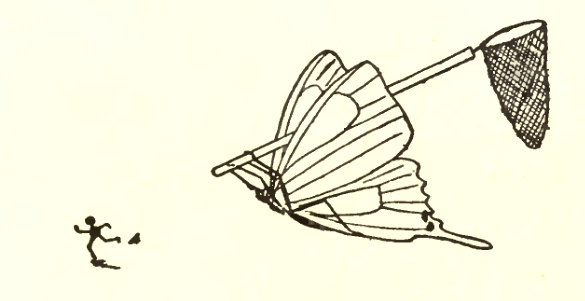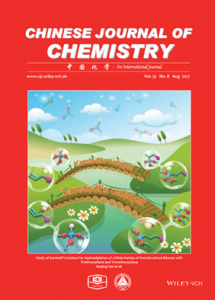What Caught Our Attention: A previous collaborator with high-profile plant biologist Olivier Voinnet (who now has eight retractions) has issued an interesting correction to a 2010 PNAS paper. Susana Rivas is last author on the paper, the correction for which notes some images were duplicated, and others were “cropped and/or stretched to match the other blots.” Rivas is currently a group leader at The Laboratory of Plant-Microbe Interactions (LIPM), “a combined INRA-CNRS Research Unit.” Continue reading Caught Our Notice: Voinnet co-author issues another correction
Category: corrections
Caught Our Notice: Big journal, big correction
 Title: Tranexamic Acid in Patients Undergoing Coronary-Artery Surgery
Title: Tranexamic Acid in Patients Undergoing Coronary-Artery Surgery
What Caught Our Attention: When the New England Journal of Medicine (NEJM) publishes a correction that is more than a misspelling of a name, we take a look. When NEJM publishes a 500-word correction to the data in a highly cited article, we take notice. This study tested the effects of a drug to prevent blood loss in patients undergoing heart surgery; it’s been the subject of correspondence between the authors and outside experts. The correction involved tweaks — lots of tweaks — to the text and tables, which did not change the outcomes. Continue reading Caught Our Notice: Big journal, big correction
Caught Our Notice: Brian Wansink issues correction that’s longer than original paper
 Title: Attractive names sustain increased vegetable intake in schools
Title: Attractive names sustain increased vegetable intake in schools
What Caught Our Attention: One thing can be said for the corrections for Brian Wansink‘s papers — they aren’t short. After James Heathers outlined some of his concerns about the highly cited study back in March, 2017, the journal has issued a correction, and it’s longer (1636 words) than the original, highly cited paper (1401 words). Some of the changes include explaining the children studied were preschoolers (3-5 years old), not preteens (8-11), as originally claimed. (It may be hard to imagine how the authors could make such a mistake, but they did it once before, in another retracted paper.) Even with all those words explaining the correction — we’re only including an excerpt of the entire notice below — some concerns still remain: Continue reading Caught Our Notice: Brian Wansink issues correction that’s longer than original paper
Caught Our Notice: Forgot to make your article open access? It’ll cost you (with a correction)

Title: Industrial antifoam agents impair ethanol fermentation and induce stress responses in yeast cells
What Caught Our Attention: When authors decide they want to make their articles freely available after they’ve already been published, how should publishers indicate the change, if at all? Recently, Ross Mounce (@rmounce) thought it was odd a Springer journal issued a formal correction notice when the authors wanted to make their paper freely available, and we can’t say we disagree. As he posted on Twitter:
Caught Our Notice: 1,376 words of overlap in paper by food researcher Brian Wansink

Title: Change Their Choice! Changing Behavior Using the CAN Approach and Activism Research
What Caught Our Attention: Food researcher Brian Wansink has had a rough time lately. After researchers began scrutinizing his work, he has racked up five retractions and multiple corrections. (We’re counting one retracted paper twice, as Wansink first retracted and replaced it with a new version, then retracted the replacement.)
These notices haven’t gone unnoticed, either by us or other media outlets — BuzzFeed reported on his most recent retraction this weekend, a paper a critic discussed with us, as well. Yesterday, BuzzFeed also reported that Cornell is investigating. (It wouldn’t be the first time — in April, Cornell announced that it had found evidence of mistakes, not misconduct, in Wansink’s papers.) Below, we present his 13th correction, for duplicated text — 1,376 words of duplicated text, to be exact.
Continue reading Caught Our Notice: 1,376 words of overlap in paper by food researcher Brian Wansink
Caught Our Notice: Oops — paper included proofreader’s query

Title: Concise Review: Mesenchymal Stem Cells in Neurodegenerative Diseases
What Caught Our Attention: Everyone makes mistakes — but some are more amusing than others. In one recent correction, the publisher (Wiley) admitted to including a proofreader’s query in the published manuscript. But didn’t say what the query was.
We looked around, and think we found the added notes in the abstract on the PubMed entry (emphasis ours): Continue reading Caught Our Notice: Oops — paper included proofreader’s query
Caught Our Notice: Reporter’s inquiry prompts financial disclosure in autism paper

What caught our attention: When journalist Brendan Borrell was investigating a controversial autism treatment program for Spectrum, he came across a study where lead author Kat Houghton failed to disclose a prior relationship with the treatment center that taught the program, called Son-Rise.
The Spectrum article notes:
Continue reading Caught Our Notice: Reporter’s inquiry prompts financial disclosure in autism paper
Caught Our Notice: Another retraction for researcher paid $100k to leave uni

When Retraction Watch began in 2010, our co-founders Ivan Oransky and Adam Marcus quickly realized they couldn’t keep up with the hundreds of retractions that appeared each year. And the problem has only gotten worse — although we’ve added staff, the number of retractions issued each year has increased dramatically. According to our growing database, just shy of 1,000 retractions were issued last year (and that doesn’t include expressions of concern and errata). So to get new notices in front of readers more quickly, we’ve started a new feature called “Caught our Notice,” where we highlight a recent notice that stood out from the others. If you have any information about what happened, feel free to contact us at [email protected].
Title: Diabetes and Overexpression of proNGF Cause Retinal Neurodegeneration via Activation of RhoA Pathway and Diabetes-Induced Superoxide Anion and Breakdown of the Blood-Retinal Barrier: Role of the VEGF/uPAR Pathway
What caught our attention:
Continue reading Caught Our Notice: Another retraction for researcher paid $100k to leave uni
Caught Our Notice: Investigation finds “accidental mistakes” in PNAS stem cell paper

When Retraction Watch began in 2010, our co-founders Ivan Oransky and Adam Marcus quickly realized they couldn’t keep up with the hundreds of retractions that appeared each year. And the problem has only gotten worse — although we’ve added staff, the number of retractions issued each year has increased dramatically. According to our growing database, just shy of 1,000 retractions were issued last year (and that doesn’t include expressions of concern and errata). So to get new notices in front of readers more quickly, we’ve started a new feature called “Caught our Notice,” where we highlight a recent notice that stood out from the others. If you have any information about what happened, feel free to contact us at [email protected].
Title: Combined hydrogels that switch human pluripotent stem cells from self-renewal to differentiation
What caught our attention: Continue reading Caught Our Notice: Investigation finds “accidental mistakes” in PNAS stem cell paper
Chemistry journal issues correction longer than original paper
 A 2011 chemistry paper required corrections so extensive that the author published the changes as a second, longer paper.
A 2011 chemistry paper required corrections so extensive that the author published the changes as a second, longer paper.
Both papers, published in the Chinese Journal of Chemistry, described the synthesis of a protein molecule with potential therapeutic applications in cancer. But when the paper’s corresponding author Yikang Wu tried to continue the work, he discovered that a substantial part of the 2011 study was incorrect.
The original paper is not marked with any editor’s note, even though the new paper — which is three pages longer than the 2011 version — acknowledges it is a “partial retraction/correction of previous results.” The new paper does appear in the list of “related content” for the 2011 article.
Given the errors, in the 2017 paper, Wu and his co-authors write: Continue reading Chemistry journal issues correction longer than original paper
 Title:
Title: